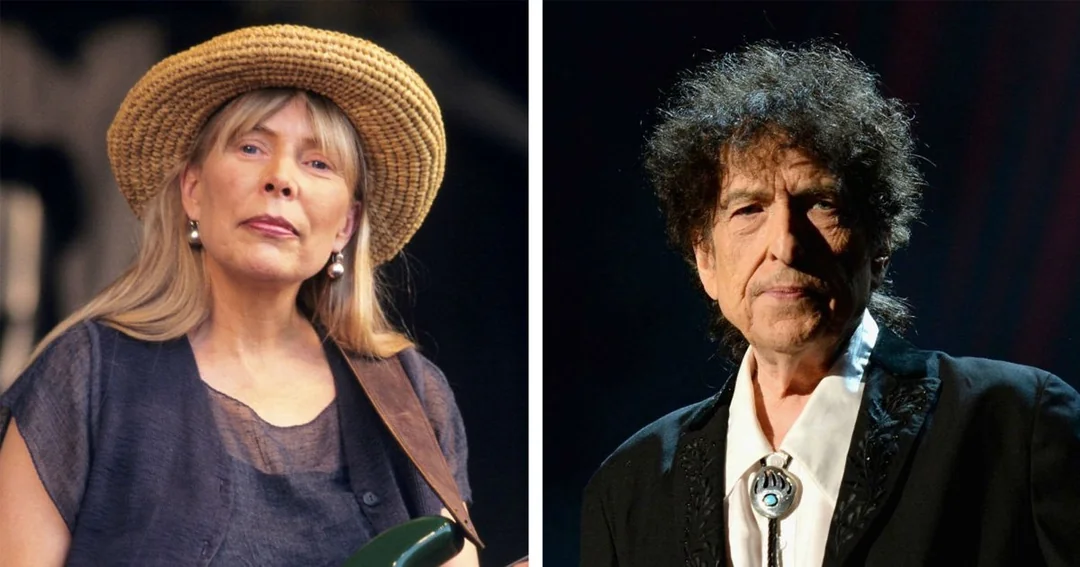When Bob Dylan changed Joni’s view of songwriting
In the mid-1960s, long before Joni released her first album, she heard Dylan’s song Positively 4th Street. That moment had a big impact on her. She said hearing that song made her realize: you don’t have to sing old traditional folk stories — you can write about anything, even your own life and feelings.
Before that, many of her songs followed old folk traditions. But after Dylan, she began digging deeper into her own soul, writing songs that were more personal and honest. That changed everything about how she approached her music.
From respect to working together
Dylan’s music inspired Joni — but she didn’t just admire him from afar. Later, she actually joined him on tour. On his famous 1975–76 Rolling Thunder Revue, she performed alongside Dylan. That suggests at least a temporary friendship or professional respect between them.
Even so — as time went on — their relationship got complicated.
Turning points: praise, then criticism
Years after being inspired by Dylan, Joni’s view of him shifted dramatically. By 2010, she was openly critical. She called Dylan “not authentic,” accused him of plagiarism, and even said his name and voice felt “fake.” That’s pretty harsh — especially given how much influence he had on her early songwriting.
At the same time, she seemed aware of some irony: after all, Joni herself had changed her name (her birth name was Roberta Joan Anderson). Some people wondered why she would criticize Dylan’s authenticity.
Her opinion softened slightly later — she admitted she “liked a lot” of his songs — but she still said she didn’t think he was musically gifted. She accused him of borrowing other people’s styles, saying his voice and guitar playing weren’t special, and called him more of a performance “character” than a genuine singer-songwriter.
Backstage anecdotes and awkward moments
One story Joni shared was about an uncomfortable moment on tour: she said Dylan “never brushes his teeth,” so when they were sharing a microphone, his breath was “right in my face.” It’s a small but pointed detail — a personal, almost petty complaint that underscored how far their relationship had fallen.
Others close to the tour also commented on Dylan’s self-made persona. One observer described Dylan as a creation — “an invention of his own mind.” That suggests Joni may have felt Dylan was more about myth and image than honest music.
What this feud really shows
At its heart, the story of Joni and Dylan isn’t really about a clean-cut “feud.” It’s messy — full of admiration, personal history, inspiration, disappointment, and contradictions.
Dylan opened the door for Joni to write from her own truth.
Later, she criticized him for what she saw as dishonest — both musically and personally.
Yet despite their differences, both artists remain icons. Their legacies — their songs, their influence — are deeply intertwined in the history of folk and rock music.
Maybe that’s the most interesting part: not whether they got along, but how their journeys overlapped — how one artist pushed the other to grow, and how misunderstandings or changing perspectives complicated that respect.
Whether you see it as a feud, a transformation, or a bitter love — it’s a story of two legends whose lives touched, drifted apart… but whose music continues to echo across generations.

